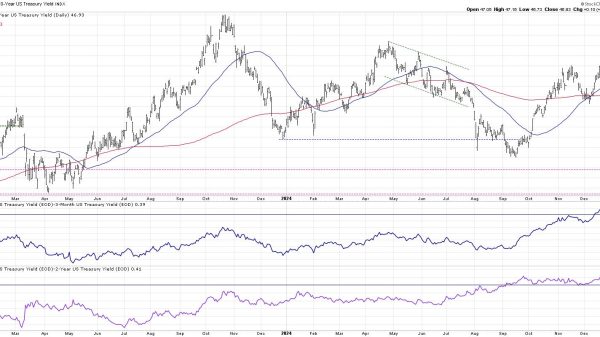Food price inflation is expected to climb above 4 per cent this year, the British Retail Consortium (BRC) has warned, in a sharp reversal of the recent trend of slowing shop prices.
According to the lobby group’s forecasts, prices at the supermarket tills will surge by an average of 4.2 per cent in the second half of the year.
Helen Dickinson, chief executive of the BRC, attributed the looming price increases to rising employer national insurance contributions, higher national living wage rates, and fresh packaging levies, all of which will leave little scope for retailers to absorb the additional burden. “There is little hope of prices going anywhere but up,” she said, urging the government to ensure that its planned shake-up of business rates does not inflict further costs on shops already under pressure.
The BRC’s alarm comes despite evidence that overall shop prices fell by 1 per cent last month, a faster decline than the 0.6 per cent recorded in November. Non-food items dropped by 2.4 per cent year on year, although the later timing of Black Friday in 2024 compared with the previous year may have distorted the figures by boosting discounting activity.
Dickinson noted that while food inflation appeared to have bottomed out at 1.8 per cent, it is now poised to climb again: “With many price pressures on the horizon, shop price deflation is likely to become a thing of the past.”
The warning coincides with separate analysis from City investment firm Shore Capital, which suggested that government policy will be the main driver of grocery inflation this year, rather than commodity prices or exchange rates. The company pointed to the employer national insurance increase, rising to 15 per cent from 13.8 per cent in April, as a significant blow to supermarkets and major retailers. Tesco, for instance, is forecast to face an extra £250 million in costs.
Between 2022 and 2023, rising food and energy bills sent the UK’s overall inflation rate soaring; food inflation, in particular, peaked at 19.3 per cent in March 2023. A subsequent slowdown in both food and energy costs helped to bring consumer price inflation back into single digits, though it nudged up to 2.6 per cent in November from 2.3 per cent the previous month.
Shore Capital cautioned that any renewed surge in food inflation could undermine the Bank of England’s current trajectory of reducing interest rates, at present standing at 4.75 per cent. Investors had anticipated two or three rate cuts this year, but that prospect could come under threat if supermarket prices start moving significantly higher again.
Read more:
Food inflation poised to jump above 4% as levies and wage rises weigh on retailers




























